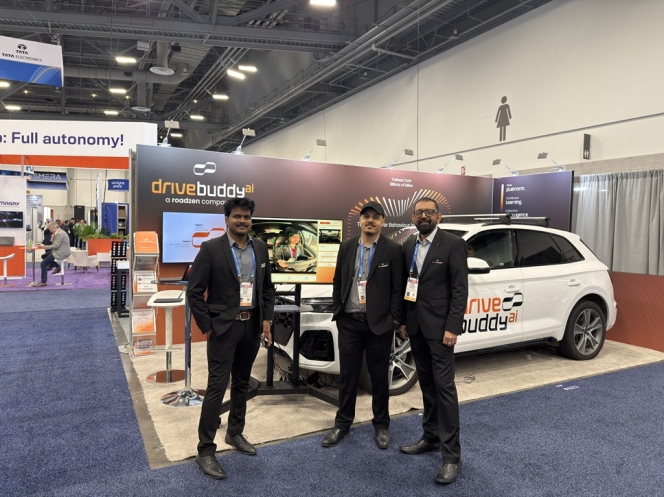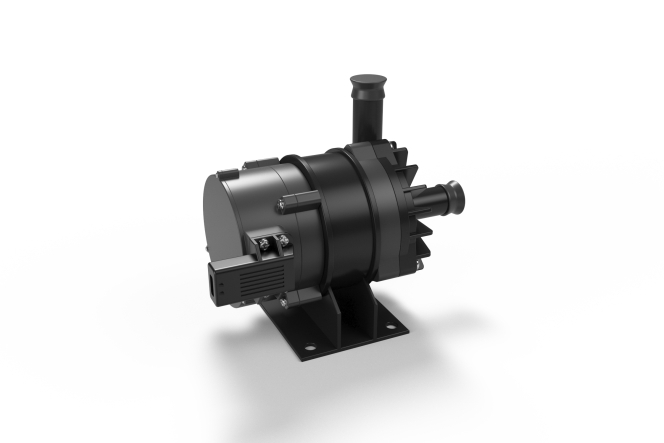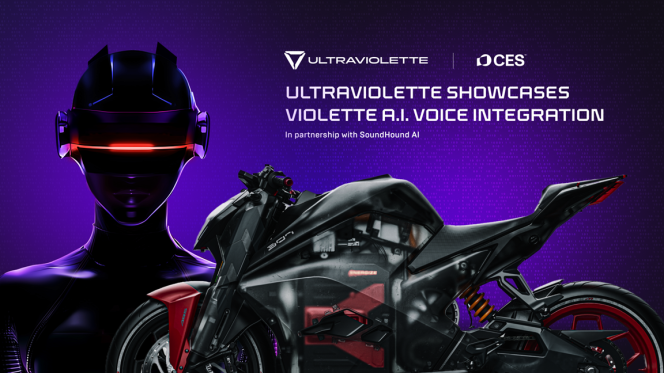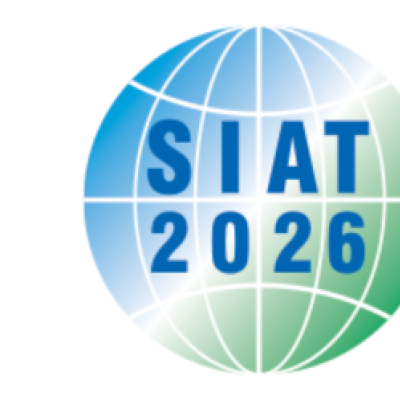- HighTec EDV-Systeme
- Elektrobit
- Infineon Technologies
- AUTOSAR Classic
- Patrick Will
- Florian Bartels
- Mario Cupelli
Hightec, Elektrobit And Infineon Unite To Advance Automotive Software With Rust-Autosar Integration
- By MT Bureau
- July 21, 2025
HighTec EDV-Systeme, Elektrobit and Infineon Technologies have announced a strategic collaboration aimed at accelerating automotive software innovation by enabling the integration of Rust applications with AUTOSAR Classic basic software.
As ecosystem partners within Infineon Technologies’ Drive Core for its AURIX™ microcontrollers, HighTec and Elektrobit are jointly launching a development bundle designed to simplify and accelerate software development for the automotive industry. The bundle includes Elektrobit’s EB tresos AutoCore and HighTec’s automotive-grade LLVM-based Rust and C/C++ compiler, specifically tailored for the AURIX TC4x families of microcontrollers.
Through this close integration, embedded software developers will gain seamless access to all necessary tools and software in a single package. The solution is geared towards enabling the use of Rust for functional safety applications, even in the most complex automotive Electronic Control Units (ECUs).
Rust is increasingly being recognised as a critical programming language in automotive environments due to its performance, reliability and memory safety. Its strong safety attributes are especially relevant as the industry shifts toward software-defined vehicles and prepares for evolving cybersecurity and functional safety regulations such as UN R155 and the EU Cyber Resilience Act.
By combining HighTec’s ISO 26262 ASIL D-certified Rust compiler with Elektrobit’s AUTOSAR Classic basic software, the collaboration enables a hybrid development model. This allows new software components developed in Rust to operate alongside existing C/C++ code, reducing risk while maintaining compliance with stringent safety standards.
The Drive Core software bundle for Infineon’s AURIX TC4x includes the complete toolchain to start development: EB tresos configuration tool, Infineon MCALs and an extensive set of examples and tutorials for building AUTOSAR components in Rust.
Additionally, Elektrobit’s EB tresos has been enhanced to support clean and efficient Rust development, aiming to minimise or eliminate the need for "unsafe" code. The integration offers a robust toolchain capable of generating system-access code while also supporting advanced static analysis tools like Rust’s Clippy and automatic code formatting. This strengthens safety assurance and improves development productivity.
HighTec’s Rust and C/C++ compiler, based on the well-established LLVM open-source framework, is the first Rust compiler developed specifically for Infineon’s AURIX TC3x and TC4x microcontrollers. It includes advanced architecture-specific optimisations and a rapid build system designed to facilitate the development and certification of safety-critical software.
Infineon, which boasts the industry’s largest Microcontroller Abstraction Layer portfolio, continues to embrace an ecosystem approach to foster innovation and scalability. Its Drive Core software bundles are designed to provide foundational support for modern automotive software development, combining microcontrollers, basic software and extensive tool support into a cohesive development platform.
This partnership marks a significant step forward in the integration of modern programming languages like Rust into traditional automotive software frameworks, aligning with the industry's growing focus on safety, security and performance.
Patrick Will, Senior Director of Automotive Software, Infineon, said, "We believe that Drive Core is a game-changer for the automotive industry, and we are excited to see companies such as HighTec and Elektrobit leveraging it to drive innovation."
Florian Bartels, Senior Expert and System Architect at Elektrobit, said, “By taking Rust to the AUTOSAR Classic environment, Elektrobit continues to drive innovation in the automotive software industry. Rust’s inherent safety features and its seamless integration into existing AUTOSAR Classic environments make it a perfect fit for modern ECU development, enabling developers to create reliable, secure and high-performance automotive software.”
Mario Cupelli, CTO, HighTec, said, “Our partnership with Elektrobit empowers automotive customers to build safer and more efficient software solutions. By offering our proven Rust compiler along with Elektrobit’s tools in a comprehensive bundle, we give automotive suppliers and OEMs a competitive edge.”
drivebuddyAI Showcases Vision-Based Mobility Platform At CES 2026
- By MT Bureau
- January 15, 2026

drivebuddyAI, the Ahmedabad-based developer of AI-powered Advanced Driver Assistance Systems (ADAS), debuted its mobility platform at CES 2026. The system provides data-driven solutions for commercial fleets, vehicle manufacturers, insurance providers and urban planners.
The platform is claimed to have been underpinned by 3.5 billion kilometres of driving data from India and Europe. According to the company, existing fleet deployments have resulted in an 83 percent reduction in drowsiness and a 72 percent reduction in fleet risk. Insurance companies are currently utilising the platform’s Fleet Safety Index to develop usage-based insurance (UBI) products and video-enabled First Notice of Loss (FNOL) systems to manage loss and claim ratios.
The platform operates by collecting data from High Dynamic Range (HDR) cameras and the vehicle's Controller Area Network (CAN). This information is processed on the vehicle using a real-time QNX or Linux edge system. The software includes patented models for driver monitoring, collision warnings, and blind-spot detection.
The system utilises a federated learning architecture, which enables real-time AI learning and data protection. Updates are delivered back to vehicles via over-the-air (OTA) technology, while insights are shared with partners through cloud APIs. The technology meets the AIS-184 standard in India and is certified under the European Union’s General Safety Regulation (GSR) 2144 and the EURO NCAP 2026 protocol.
Beyond safety, drivebuddyAI intends to apply its technology to Smart Cities and mapping. Features include road condition monitoring, traffic behaviour analytics, and the identification of accident black-spots to assist in infrastructure planning. For vehicle manufacturers, the pre-certified AI is intended to reduce the time and cost required for validation.
Nisarg Pandya, CEO and Founder, drivebuddyAI, said, “The response we received at CES has been tremendous. Attendees visiting our booth were fascinated by our innovation. Our platform has already demonstrated a reduction of over 70 percent in accidents across large commercial fleet deployments. Underlying technology is validated by leading global regulators, including the Automotive Research Association of India under India’s AIS-184 standard and certified in the European Union’s General Safety Regulation (GSR) 2144 and European New Car Assessment Programme (EURO NCAP) 2026 protocol. The platform is also ready to meet the requirements of the National Highway Traffic Safety Administration and the Federal Motor Carrier Safety Administration (USA), and other global markets. We look forward to taking this technology to more markets.”
Krafton India Partners Royal Enfield To Introduce Bullet 350 And Continental GT 650 In Battlegrounds Mobile India
- By MT Bureau
- January 13, 2026
Krafton India and Royal Enfield have announced a strategic partnership to integrate the iconic Bullet 350 and Continental GT 650 motorcycles as rideable vehicles within Battlegrounds Mobile India (BGMI) game, beginning in January 2026.
As part of the integration, Royal Enfield showcased a physical motorcycle based on the Continental GT 650, featuring a design inspired by the aesthetics of BGMI. The motorcycle was developed with a Delhi-based custom builder using metal forming and prototyping. The design includes picatinny rails, plating and tyres that reference combat and survival mechanics found in the game.
The partnership is included in the BGMI 4.2 update scheduled for 15 January 2026. Players will have access to Royal Enfield-themed content and rewards through a special format from 19 January to 22 February 2026. Available rewards include the Revel 01 Set, a P90 gun skin and the virtual versions of the Continental GT 650 and Bullet 350.
To drive participation, the collaboration introduces a login mechanic where players who remain in the application for 60 minutes daily qualify for a Royal Enfield Event Crate. Users can collect up to 34 crates during the event period, containing various items designed to reflect the brand's legacy within the game ecosystem.
Seddharth Merrotra, Head of Business Development & Partnerships, Krafton India, said, “This strategic partnership with Royal Enfield embodies BGMI’s vision of creating culturally meaningful and locally rooted experiences. 2026 will be a year of many firsts and we’re kicking it off with one of our most ambitious brand integrations yet, while fundamentally elevating how partnerships enhance player engagement and drive shared value. Royal Enfield is an iconic name in the global automotive universe and its deep community roots with evolving digital ethos make it a natural ally for BGMI’s player-centric universe. Together, we are weaving storytelling, lifestyle, and digital culture into gameplay in a way that truly reflects the aspirations of modern Indian youth. Looking ahead, this collaboration sets a strategic foundation for future partnerships that are experiential, immersive, and deeply connected with our community’s passions across movies, sports, FMCG and lifestyle landscapes.”
Adrian John Sellers, Head - Custom & Motorsports, Royal Enfield, said, "Partnering with BGMI is about more than just presence; it’s about meeting our community in their element and amplifying the shared values of thrill, freedom, and self-expression. The custom-built Continental GT 650 is the physical heartbeat of this collaboration—an intersection where the raw, tactical aesthetic of gaming meets the soul of custom motorcycling. By blending BGMI’s battle-ready elements with Royal Enfield DNA, we have created a machine where imagination isn't limited by reality. It is a celebration of creative exploration for a community that thrives on both the digital and the open road."
BASF Extends Plastic Service Life Predictions For Electric Vehicle Components
- By MT Bureau
- January 13, 2026

German chemical major BASF has announced the results of long-term material testing that predicts a service life exceeding 100,000 hours for its latest generation of polyamides used in electric vehicles (EVs).
The shift toward e-mobility has increased durability requirements for plastic components under the bonnet, with components now requiring a lifespan of 45,000 to 55,000 hours, compared to 5,000 hours for internal combustion engines (ICE).
The increase in required service life is driven by battery charging processes that require constant temperature regulation. To verify performance, BASF transitioned from standard air-heat testing to hydrolysis storage, which involves ageing materials in water-glycol mixtures. The company employs the Arrhenius equation to determine the relationship between temperature and reaction rate, allowing for the extrapolation of service life under standard operating conditions.
The material tested, Ultramid, features glass fibre reinforcement and a low halogen content. Testing initiated in August 2020 indicates that the hydrolysis resistance of this polyamide allows it to maintain its properties for over 100,000 hours. These components are typically utilised in vehicle pumps and valves.
The data provides the automotive and haulage sectors with verification that plastic components can withstand the chemical and thermal demands of long-term EV operation.
- Ultraviolette Automotive
- Violette
- Consumer Electronics Show
- CES 2026
- Soundhound AI
- Niraj Rajmohan
- Narayan Subramaniam
Ultraviolette Unveils Voice Assistant For F77 At CES 2026
- By MT Bureau
- January 12, 2026

Bengaluru-based electric vehicle and technology company Ultraviolette Automotive has unveiled its voice assistant, christened ‘Violette’, at the Consumer Electronics Show (CES) 2026. Developed in partnership with Soundhound AI, the system allows riders to interact with the F77 electric motorcycle using voice commands to manage vehicle functions and access data.
The technology was demonstrated through the wake phrase ‘Violette’, enabling users to switch riding modes, start navigation and retrieve information from the user manual, such as tyre pressure specifications and service instructions. The system also provides proactive alerts, ride statistics and pre-ride checks via voice interface.
To facilitate interaction without visual distraction, the voice assistant operates through an audio-integrated helmet. This setup serves as the primary interface between the rider and the motorcycle, allowing for the retrieval of information while maintaining focus on the road.
Narayan Subramaniam, CEO & Co-Founder, Ultraviolette Automotive, said, “At Ultraviolette, we believe AI is going to play a pivotal role in enhancing rider safety. As a technology-first company in the mobility space, our mission has always been to redefine the riding experience by fusing cutting-edge engineering with intelligent systems. The integration of Violette A.I. with Soundhound AI marks a significant step in advancing human–machine interaction. By enabling seamless voice-led control we are creating a riding experience that is intuitive, immersive, and future-ready, allowing riders to stay fully focused on what matters most- the road ahead”.
Niraj Rajmohan, CTO & Co-Founder, Ultraviolette, said, “At Ultraviolette, we have spent years developing technologies that make a meaningful impact in the mobility space, with a singular focus on bringing riders closer to their motorcycles in the most effortless way possible. Artificial Intelligence plays a crucial role in this transformation and in elevating the riding experience by anticipating rider needs, simplifying complex interactions, and delivering information instantly and safely. Violette A.I. represents a huge step in that direction, where every command, every query, and every interaction enhances rider confidence, safety, and comfort. By embedding intelligence directly into the riding experience, we are not only simplifying how riders engage with their motorcycles but also creating a new paradigm of connected mobility that is smarter, safer, and deeply human-centric”.







Comments (0)
ADD COMMENT